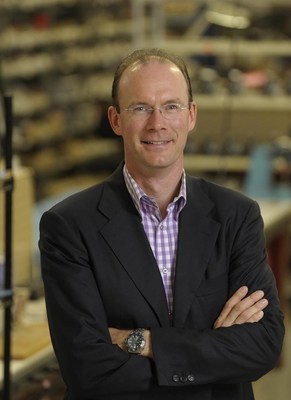Biostage Hires David Green as Chief Executive Officer
Biostage, a biotechnology company focusing on esophageal treatments, has appointed David Green as its new CEO and Chairman. Mr. Green, who previously held these positions in 2015, is also investing $250,000 in the company. His compensation will largely consist of stock options tied to company milestones and will minimize cash burn. Biostage's Esophageal Implant has promising clinical outcomes, potentially addressing significant esophageal diseases and benefiting from orphan-drug status which could grant 7 years of market exclusivity.
- Hiring David Green brings experienced leadership back to Biostage.
- David Green's investment of $250,000 demonstrates confidence in the company.
- Biostage's Esophageal Implant has shown positive clinical results, indicating potential for market success.
- Orphan-drug status may provide 7 years of market exclusivity.
- David Green's prior resignation due to a major accident could raise concerns about leadership continuity.
HOLLISTON, Mass., Nov. 30, 2021 /PRNewswire/ -- Biostage, Inc. (OTCQB: BSTG) ("Biostage" or the "Company"), a biotechnology company with successful "first-in-human" experience in esophageal cancer and FDA approval to commence a clinical trial of its Biostage Esophageal Implant for esophageal disease, today announced it has hired David Green as its Chief Executive Officer and appointed Mr. Green as Chairman of the Board of Directors (the "Board"). Mr. Green is the founder and CEO of Zero CarbonTM LLC, an energy-efficiency business. He is also the former CEO and Chairman of Biostage. Mr. Green resigned from his roles in Biostage in 2015 after he had been involved in a major road accident.
In addition to rejoining Biostage, Mr. Green has invested
Other than the minimum wage required by Massachusetts law, Mr. Green's compensation will consist entirely of stock options. Approximately two thirds of these options will vest based on the achievement of milestones set by the Board, and one third will vest over the next 12 months. This both minimizes the cash burn of the Company and provides a strong incentive for Mr. Green to achieve the goals of the Company and its shareholders.
Mr. Green commented, "I am excited to be back running Biostage. The clinical results of the first-in-human use of our Biostage Esophageal Implant, conducted at Mayo Clinic in 2017, were very positive. We believe that this is the first time that the esophagus has been regenerated inside the human body."
This single-patient case, conducted by Dr. Dennis Wigle, M.D., Ph.D and Chair of Thoracic Surgery at the Mayo Clinic, was approved under the FDA's E-IND ("compassionate use") protocol, and was published in JTO Clinical and Research Reports in August this year. The paper concludes that the Biostage Esophageal Implant, "would have considerable clinical use". The paper continues, "In this case report, we found that a clinical-grade, tissue-engineered esophageal graft can be used for segmental esophageal reconstruction in a human patient. This report demonstrates that the graft supports regeneration of the esophageal conduit. Histologic analysis of the tissue postmortem, 7.5 months after the implantation procedure, revealed complete luminal epithelialization and partial esophageal tissue regeneration."
The Biostage Esophageal Implant is made of a scaffold (a hollow tube of biocompatible fibers) that is coated with the patient's own cells. The implant facilitates the regeneration of the patient's own esophagus which re-grows to cover the entire scaffold. The scaffold is then removed from the patient via the mouth, so no major surgery is required to remove the scaffold. Nothing is permanently implanted in the patient's body. In the case described above, the patient did not take long-term immuno-suppression therapy. With typical organ transplants, immuno-suppressive drugs are required to prevent the patient's immune system from rejecting the donated organ. Because the Biostage Esophageal Implant is made using the patient's own cells, Biostage does not expect rejection of the implant. This removes a major obstacle to organ transplants. Also, because the Biostage Esophageal Implant is made in a factory, patients no longer need to wait for a donor organ to be available. This removes another major obstacle to organ transplants.
Based on this successful compassionate-use case and Biostage's extensive animal research, the FDA previously granted Biostage permission to begin a clinical trial in esophageal disease, absent cancer.
The American Cancer Society estimates that, in 2021, over 19,000 Americans will be diagnosed with esophageal cancer and over 15,000 will die from it. The lifetime risk of esophageal cancer in American men is approximately 1 in 125 (reference 1). In China, an important market for the Company's products, there were over 250,000 new cases of esophageal cancer and over 200,000 deaths in 2010 (reference 2). Worldwide, esophageal cancer is the sixth leading cause of cancer deaths (reference 3).
Biostage has received orphan-drug status from the FDA for its Biostage Esophageal Implant. This can grant 7 years of market exclusivity in addition to any patent protection. Biostage also has orphan-drug status for its trachea regeneration product.
Biostage is also, in collaboration with Connecticut Childrens' Medical Center, which is an investor in Biostage, investigating the use of its products in pediatric-esophageal atresia (incomplete esophagus) which, if successful, would potentially allow Biostage to obtain a "priority review" voucher from the FDA. These vouchers are transferrable and a sale of such voucher could provide a significant source of non-dilutive financing for Biostage.
Biostage's Esophageal Implant product consists of a hollow tube of fibers (the scaffold) of similar dimensions to the patient's esophagus. The scaffold is coated with cells taken from the patient which are incubated in a rotating bioreactor for several days prior to implant. The cellularized scaffold is used to surgically replace the part of the esophagus (e.g., the cancerous part) that has been removed by the surgeon. The cellularized scaffold promotes regeneration of the patient's own esophagus and the scaffold is removed once the patient's esophagus has regenerated, typically several months after surgery.
Biostage has 7 issued US patents. Additional patents are pending.
About Biostage.
Biostage is a biotechnology company developing treatments for severe disease of the esophagus. The Biostage Esophageal Implant combines a biocompatible scaffold with the patient's own cells to create an esophageal implant that has been used to treat adult esophageal cancer and could potentially be used to treat pediatric esophageal atresia and other defects of the gastro-intestinal tract as well. The Biostage Esophageal Implant leverages the body's inherent capacity to heal itself to restore the continuity of the esophagus after a part of it has been surgically removed.
Biostage is researching the applicability of its products to other cancers of the intestinal tract such as colorectal cancer. Colorectal cancer is world's third most deadly cancer (reference 4). About one million people die every year of colorectal cancer. In the U.S., the lifetime risk of developing colorectal cancer is about 1 in 25 (reference 5).
Forward-Looking Statements
Some of the statements in this press release are "forward-looking" and are made pursuant to the safe harbor provision of the Private Securities Litigation Reform Act of 1995. These "forward-looking" statements in this press release include, but are not limited to, statements relating to our financing activities; development expectations and regulatory approval of any of the Company's products, including those utilizing its Biostage Esophageal Implant technology, by the U.S. Food and Drug Administration, the European Medicines Agency or otherwise, which expectations or approvals may not be achieved or obtained on a timely basis or at all; or success with respect to any collaborations, clinical trials and other development and commercialization efforts of the Company's products, which such success may not be achieved or obtained on a timely basis or at all. These statements involve risks and uncertainties that may cause results to differ materially from the statements set forth in this press release, including, among other things, the Company's inability to obtain needed funds in the immediate future; the Company's ability to obtain and maintain regulatory approval for its products; plus other factors described under the heading "Item 1A. Risk Factors" in the Company's Annual Report on Form 10-K for the fiscal year ended December 31, 2020 or described in the Company's other public filings. The Company's results may also be affected by factors of which the Company is not currently aware. The forward-looking statements in this press release speak only as of the date of this press release. The Company expressly disclaims any obligation or undertaking to release publicly any updates or revisions to such statements to reflect any change in its expectations with regard thereto or any changes in the events, conditions or circumstances on which any such statement is based.
Investor Relations Contact
Shunfu Hu
Vice President of Business Development
and Operations
774-233-7300
shu@biostage.com
References.
- https://www.cancer.org/cancer/esophagus-cancer/about/key-statistics.html
- https://pubmed.ncbi.nlm.nih.gov/23372946/
- https://pubmed.ncbi.nlm.nih.gov/32965635/
- https://www.ncbi.nlm.nih.gov/pmc/articles/PMC6791134/
- https://www.cancer.org/cancer/colon-rectal-cancer/about/key-statistics.html
![]() View original content to download multimedia:https://www.prnewswire.com/news-releases/biostage-hires-david-green-as-chief-executive-officer-301433512.html
View original content to download multimedia:https://www.prnewswire.com/news-releases/biostage-hires-david-green-as-chief-executive-officer-301433512.html
SOURCE Biostage, Inc.
FAQ
What leadership changes occurred at Biostage in November 2021?
What financial investment did David Green make in Biostage?
What is the significance of Biostage's Esophageal Implant?









